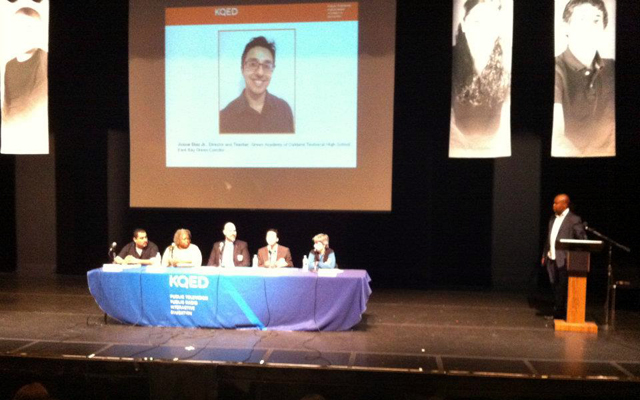Let’s begin with some numbers:
- Every year, roughly 1.3 million students in the U.S. drop out of high school. That’s 7,000 students each day.
- More than 20 percent of California high school students drop out of school before graduation*
- More than one third of California’s African American public high school students didn’t graduate*
- Roughly 27 percent of California’s Hispanic students don’t graduate from high school*
- In the City of Oakland, almost 40 percent of students don’t graduate*
- California ranked 46th in the nation in K-12 per pupil spending (almost $3,000/student below the national average).**
- In contrast, California spends an average of $47,000 per year per inmate***
- Nationwide, California ranks dead last in the number of K-12 students per teacher**
*Based on 2009 California Department of Education data
**Based on 2010-11 data compiled by the California Budget Project
***Based on 2008-9 data from the Legislative Analyst’s Office
Not the most uplifting way to start a blog post, huh? It’s all true, though. And few people are more aware of it than the teachers and students on the front lines.
On March 13, teachers, education advocates, and a number of students filled the theater at Laney College in Oakland to address the problem, ask important questions, and share thoughts on how best to tackle this ongoing crisis in American education. The forum was part of American Graduate: Let’s Make It Happen, an initiative spearheaded by the Corporation for Public Broadcasting (CPB), in partnership with America’s Promise Alliance and the Bill and Melinda Gates Foundation.
